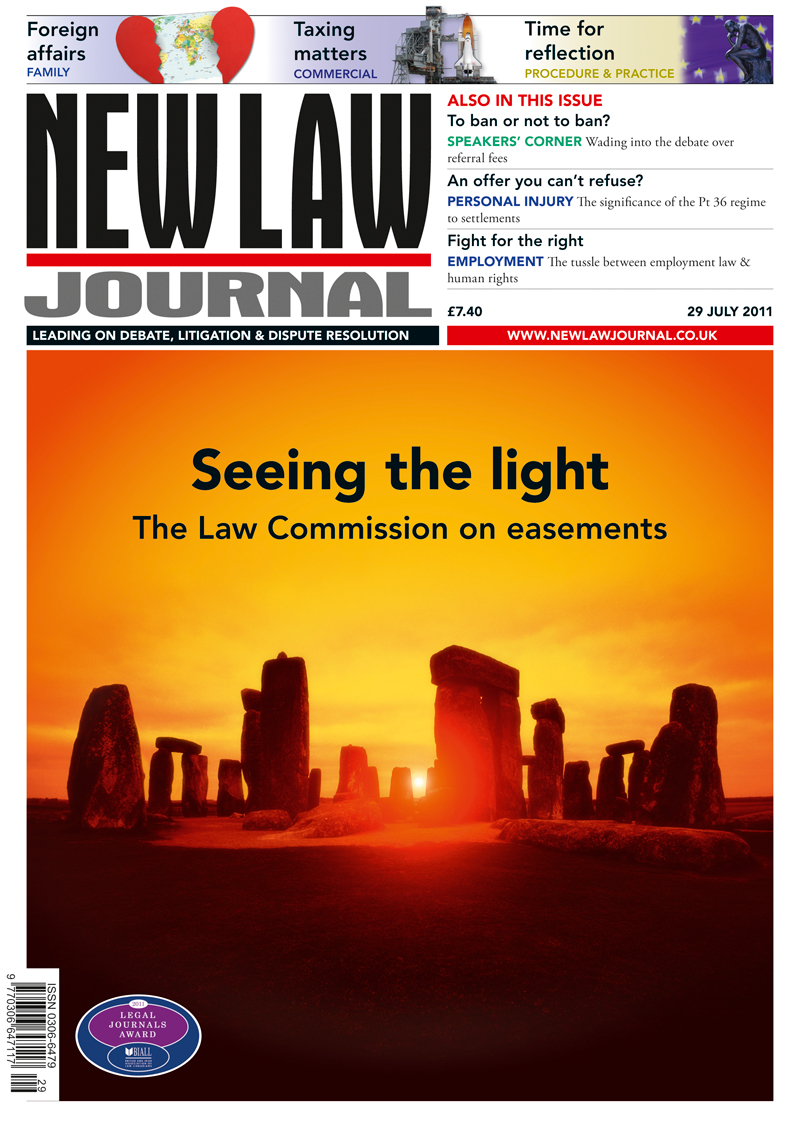
Halsbury's Law Exchange blogger Simon Hetherington reports on the inspection of Tinsley House immigration centre
Jon Robins investigates the latest challenges to hit clinical negligence lawyers
Dominic Regan wades into the debate over referral fees
Stephen Hockman QC returns to the controversy of privacy, parliament & the courts
Ian Smith enters into the tussle between employment law & human rights
Mariko Wilson & Kim Beatson examine financial relief following marital breakdown in an overseas jurisdiction
Rehana Azib reviews recent developments in personal injury claims
Elizabeth Cooke & Colin Oakley shed some light on the Law Commission’s project on appurtenant rights
When does the First-tier Tribunal have a supervisory jurisdiction, ask Charles Brasted & Jamie Potter
Dr Ann Brady considers the role of mediation across the EU
MOVERS & SHAKERS

Jurit LLP—Caroline Williams
Private wealth and tax team welcomes cross-border specialist as consultant
.tmb-mov69x69.jpg?sfvrsn=961ae4db_1)
HFW—Simon Petch
Global shipping practice expands with experienced ship finance partner hire
95ca96e3d47f4eff8d147c4f0df17c77.tmb-mov69x69.png?sfvrsn=3db5d86b_1)
Freeths—Richard Lockhart
Infrastructure specialist joins as partner in Glasgow office






